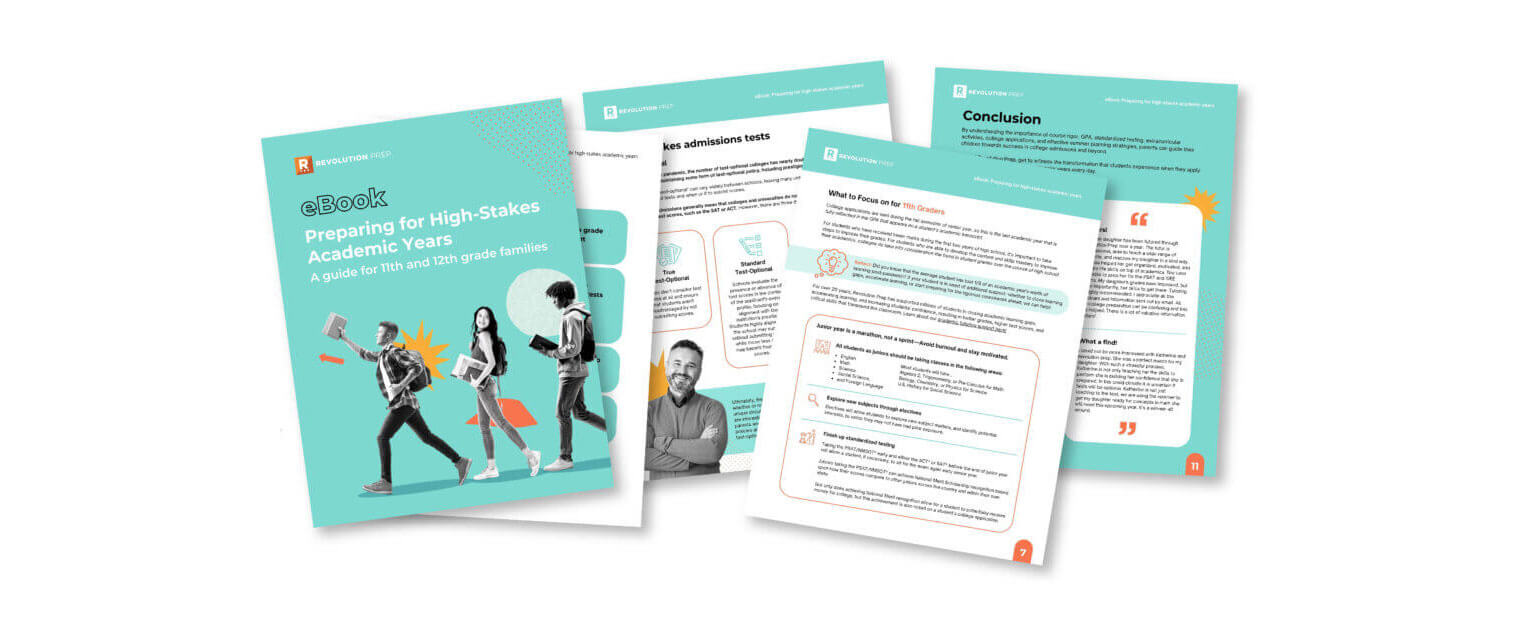
Parents play a crucial role in supporting their teenagers through the high-stakes 11th and 12th-grade years. As your child faces academic pressure, college preparations, and the challenges of transitioning to adulthood, it’s important to equip yourself with the right knowledge and strategies. If your child is going into 11th or 12th grade in the fall, summer can be a key time to prepare for those crucial years. In this blog post, we’ll explore practical steps for teenagers and parents—most of which can be started this summer—to navigate these high-stakes years successfully.
To successfully plan for the 11th and 12th-grade years and address these challenges, here are some practical steps for teenagers and parents to take during the summer:

1. Prioritize a Healthy Balance
It’s essential to understand that making the most of the summertime doesn’t mean overwhelming teenagers with educational activities. Encourage your child to plan vacation time that provides a balance of relaxation and stimulation. Help them understand the importance of “turning off” from social media to achieve true rest.
2. Identify Educational Gaps and Risks, and Allocate Time for Academic Preparation
Take stock of your child’s educational gaps and potential challenges they may face in the upcoming years. Reflect on past struggles and anticipate future difficulties. This assessment will help you determine areas that need focus during the summer.
Set aside a specific time each week for your child to work on developing the skills they need for the next academic year. Consistency is key, with short sessions three or more times per week. Independent application between sessions helps reinforce learning.

3. Foster Social Interaction
Encourage your child to use their free time to engage with peers, fostering the development of social skills and self-regulation. Social interactions provide essential downtime and opportunities for fun between academic years.

4. Personal Growth and Wellbeing
Summer is also a time for your child to focus on personal growth, well-being, and self-reflection. Sit down with your child and help them set specific goals for the upcoming academic year. Encourage them to create both academic and personal goals, and to discuss strategies to achieve them. Regularly revisit these goals throughout the year to track progress.
Dedicate time for your child to develop 1-2 new learned habits over the summer. These habits can include improving material management, planning, prioritization, study skills, decision-making, and time management. Start with short weekly sessions and encourage daily practice for skill development.
Summertime can also be a great time to seek out summer volunteer programs or internships related to your child’s academic interests or career aspirations. These experiences not only provide valuable skills but also strengthen their college applications.

5. ACT/SAT Preparation and College Essays
Summer provides time for ACT/SAT prep and college essay work that is particularly valuable for rising juniors and seniors (without the added time commitment of school and extracurricular activities). Allocate sufficient time each week for ACT/SAT prep and college essay work. By planning and completing tasks consistently, your child can reduce stress and maintain a balance between work and relaxation.

6. College Exploration and Planning
The summer before 11th and 12th grade also allows your child to begin their college exploration journey. You can plan visits to nearby colleges or participate in virtual tours. Encourage your child to take notes about their impressions, ask questions, and explore various aspects of campus life. These visits can help them narrow down their preferences and make informed decisions.
At this stage of exploration, your teen may change their mind about what they want to pursue and how they see their adult life taking shape. Encouraging what they want to do is important but remember to help them consider the different dimensions and factors of decision-making. Helping them further develop good decision-making skills as they move into their adult years is key. Summer can also be a good time to research scholarships and financial aid. Help your child understand the application requirements and deadlines and support them in gathering necessary documentation for future applications.
By following these practical steps, you can proactively navigate the high-stakes 11th and 12th-grade years with your children, ensuring they are well-prepared for their future endeavors. Together, you can navigate the challenges, celebrate their achievements, and set them up for long-term success.
Looking for a more comprehensive resource that will equip you with the tools and strategies to support your child’s academic and personal growth?
Fill out the form below to get your free eBook!

